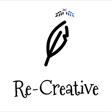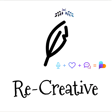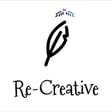Mark and Joe are joined by the Canadian actor, director, producer and playwright, Saul Rubinek.
They have a wide-ranging and educational conversation that they launch with the question: "Who was your favorite playwright." Saul answers Edward de Vere, the 17th Earl of Oxford, whom he believes (along with many others) wrote all of Shakespeare's plays.
"Even some of the most renowned academics have trouble accepting the evidence," he says.
He's done a one-man version of Merchant of Venice, and in the process researched the question; he's a proponent of the idea.
Then the conversation moves into a discussion of an opportunity Saul had to play a Hasidic rabbi in a little village in 1941 Ukraine, called Shttl. (The Yiddish word for "village.") It was a project that deeply connected him to his own family's history.
Not to be missed!
For more info on this episode, please visit the show notes.
Re-Creative is a co-production of Donovan Street Press Inc. in association with Mark A. Rayner.
Contact us at: joemahoney@donovanstreetpress.com




